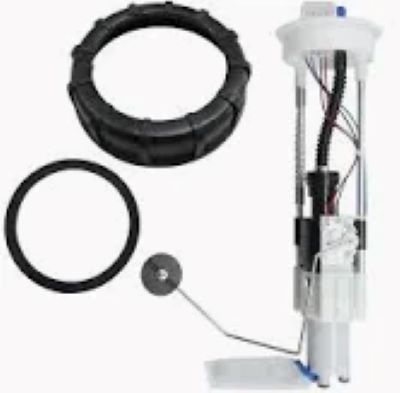If the pump is getting worn, your car may not run reliably and provide a consistant pressure of fuel to the engine. The fuel pressure specifications for most fuel-injected engines generally range from 30 to 60 psi in order for the engine to run correctly. Over time, wear and tear cause the fuel pump to lose pressure, ultimately manifesting in slower acceleration, lower gas mileage and even engine stoppage. Even in high-performance conditions, where engines require an accurate fuel delivery rate, pump wear may cause up to 10% power loss due to lack of airflow.
A fuel pump that is about to go out will present as hard starts and longer cranking times, essentially no pressure has been built up in the system so this occurs because the system did not have enough time to charge. According to the National Institute for Automotive Service Excellence, failing fuel pumps are responsible for approximately 15 percent of engine starting problems. The less effective transfer pump can provide a more air-rich fluid-lean mixture, meaning combustion will not be as thorough and could raise the temperature of the combustion of 20% — which that heat will in turn affect pistons, valves and sparkplugs.
Apparently the increased fuel consumption is another consequence of pump wear and tear, because with lower fuel pressure, the engine has to burn more to compensate. As per researched worn out pump reduce fuel efficiency by 10-15%, so need to refill more often, as a result higher running costs. Car Mechanics usually suggest that observing a drastic decrease in miles per gallon is the first sign of pump wear, primarily if you have high running vehicles.

It also affects fuel pump wear and emissions. Irregular fuel pressure throws off the exact proportions required for normal combustion, often leading to increased concentrations in the subsequent exhaust. Fuel pumps are designed to function properly when the fuel tank is above 1/4 tank, so as they become less efficient, your vehicle will turn towards using unburned fuel that it has no business adding and this leads to more strain placed upon the catalytic converter trying to process unprocessed fuel leading to overheating and potentially a malfunction of this critical emissions component. This can be added to the ill effects of fuel pump wear and tear with catalytic converter repairs or replacements which can range between $1,000-$2,500.
By replacing a worn fuel pump, you stave off additional troubles and restoring unerring fuel delivery in order to create a more efficient engine that performs well. For further reading on how to keep fuel pumps healthy, as well as high quality replacements (Source: Fuel Pump).